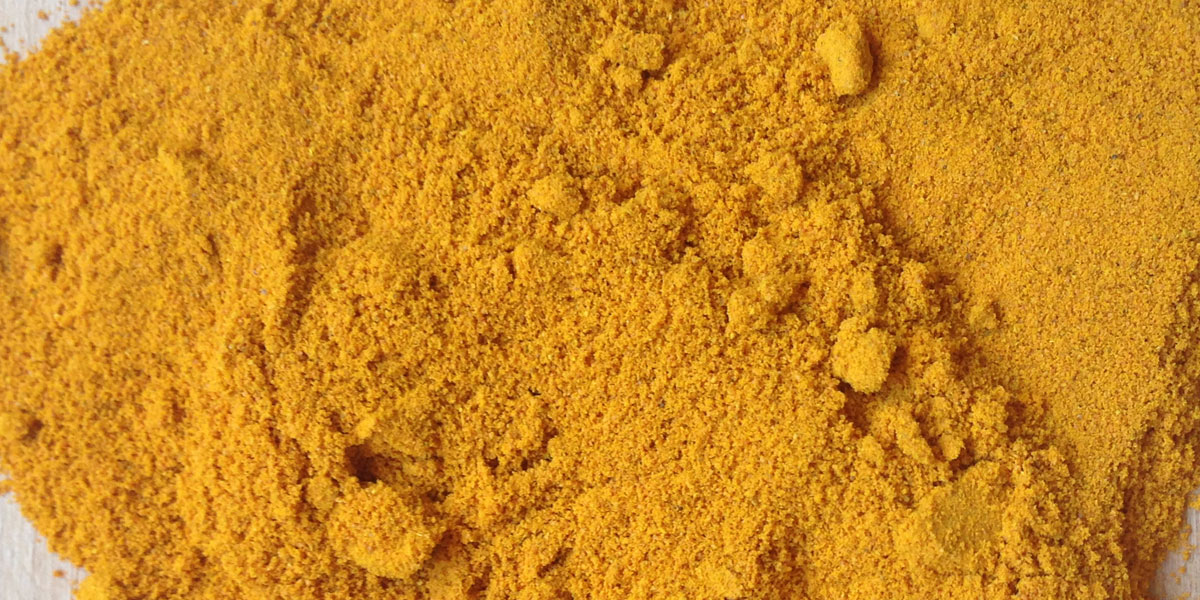Turmeric
Turmeric is a root with a peppery, warm, and truly unique taste that is a staple in Indian curries as well as a host of other amazing dishes. The aroma of turmeric is orange and gingery and the smell is uniquely delicious as well. Turmeric can be used in curries, rice/grain dishes, sprinkled onto roasted or mashed cauliflower, in soups, juiced, in smoothies, on eggs, and so much more.
- Turmeric is a very important herb in Indian Ayurvedic medicine. It is considered a symbol of prosperity, and it can help cleanse the body, treat fever, infections, arthritis, and liver issues.
- The magical ingredient in turmeric is curcumin, which gives the root its beautiful orangey-yellow hue. Curcumin is very anti-inflammatory and is comparable to potent drugs, hydrocortisone and phenylbutazone, along with over-the-counter Motrin. The best part; eating turmeric has no toxic effects, while commercial drugs are associated with significant side effects.
- Clinical studies have shown that curcumin has superpower antioxidant effects as well, which means it can neutralize free radicals in your beautiful body. In fact, turmeric’s super antioxidants plus anti-inflammatory powers help reduce pain relief, joint swelling, and morning stiffness in those with rheumatoid arthritis.
- Disease prevention studies have shown that frequent use of turmeric is linked with smaller rates of breast, prostate, lung, and colon cancer.
- Cauliflower + turmeric = a possible reduction in prostate cancer. Scientists tested turmeric’s phytonutrient, curcumin, with phenethyl isothiocyanates a phytochemical found in cruciferous vegetables, like cauliflower, kale, and broccoli. Combined, the two significantly reduced tumor growth and the ability of prostate cancer to spread in mice.
- Turmeric is good for your ticker too. Its phytonutrient, curcumin, may be able to inhibit oxidation of cholesterol in the body. This oxidation damages blood vessels and builds up plaque that can lead to heart attacks or stroke. Research published in the Indian Journal of Physiology and Pharmacology found that when volunteers who consumed 500 mg of curcumin per day for 7 days, had their blood levels of oxidized cholesterol drop by 33%, and their total cholesterol drop 11.63%. Not to mention, their good HDL cholesterol increased by 29%.
Vegukate Tips:
Turmeric can be purchased in the root form or ground up. Store turmeric root in the refrigerator for up to three weeks, or in the freezer for up to six months.
Ground turmeric can be stored in an airtight container in a cool, dark place for up to six months.
-
Turmeric, Coconut and Ginger Smoothie

Warming ingredients + vibrant nutrient-dense foods = sunshine in a glass! Read the recipe
-
Curry Cauliflower Fried Rice with Roasted Chickpeas

Crunchy and flavorful chickpeas + simple cauliflower rice + vibrant spinach = an easy dinner filled with flavor. Read the recipe
-
Sweet Potato Dal

Vitamin A rich sweet potato + flavorful onion & garlic + savory spices + super lentils + creamy coconut milk + Vitamin K and calcium packed spinach + fresh cilantro = comforting, grounding, easy as pie, nourishing Sweet Potato Dal, the vegukate way. Read the recipe (11 comments)
-
Anti-Inflammatory Pineapple Dream Smoothie

Sweet and bright pineapple, creamy banana, juicy orange, zippy ginger + crunchy chia + earthy turmeric + smooth nut milk = your favorite new way to get anti-inflammatory. Read the recipe (3 comments)
-
Warm Turmeric Milk & New Year's Ramblings

A warming & earthy drink to start your New Year's off right + plenty of rambling. Read the recipe
-
Peach, Turmeric, and Ginger Detox Smoothie

Turmeric and ginger are two of my favorite detoxifiers. Those two stars plus carrots, peaches, and almond milk? Mmm best detox ever. Read the recipe (4 comments)

